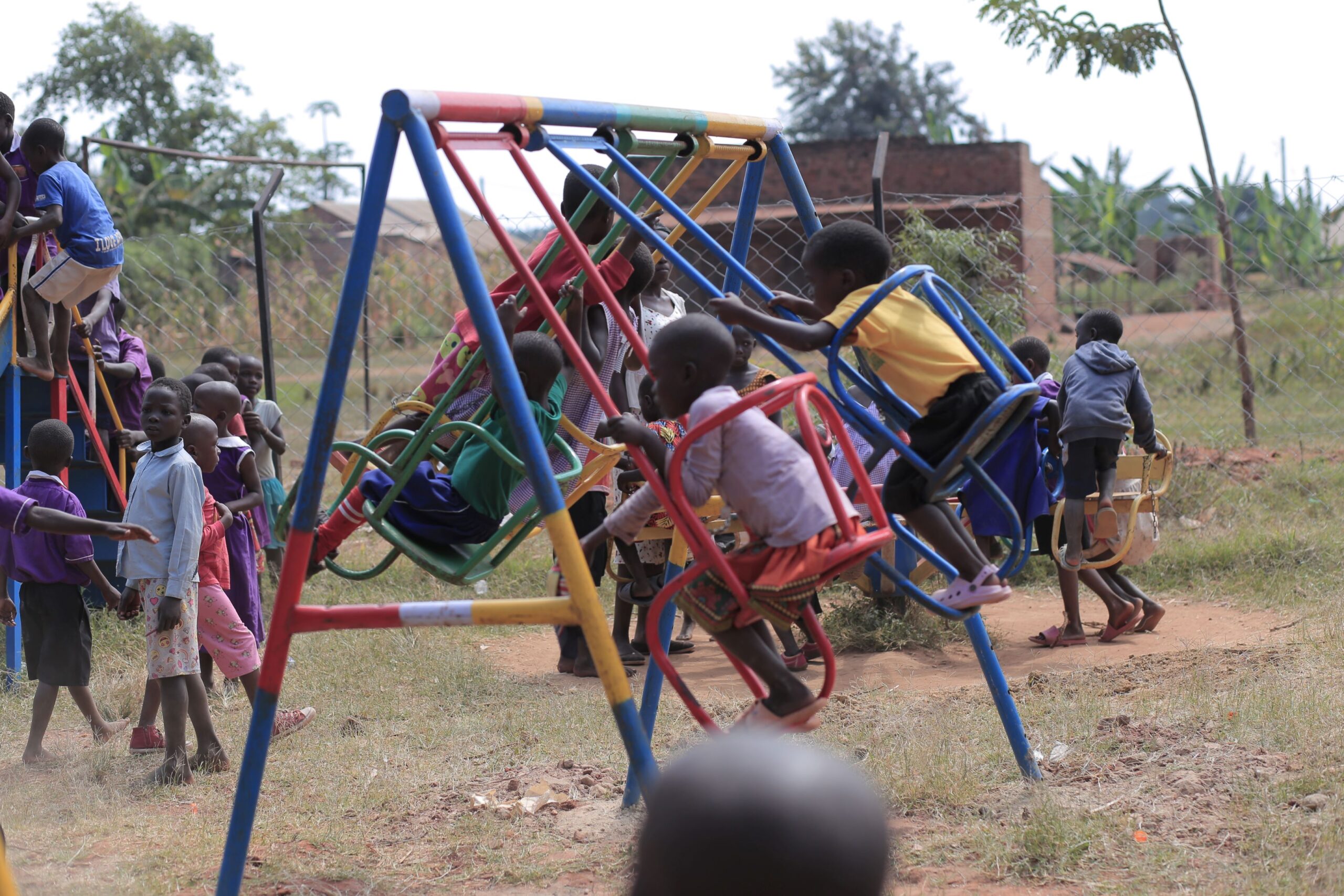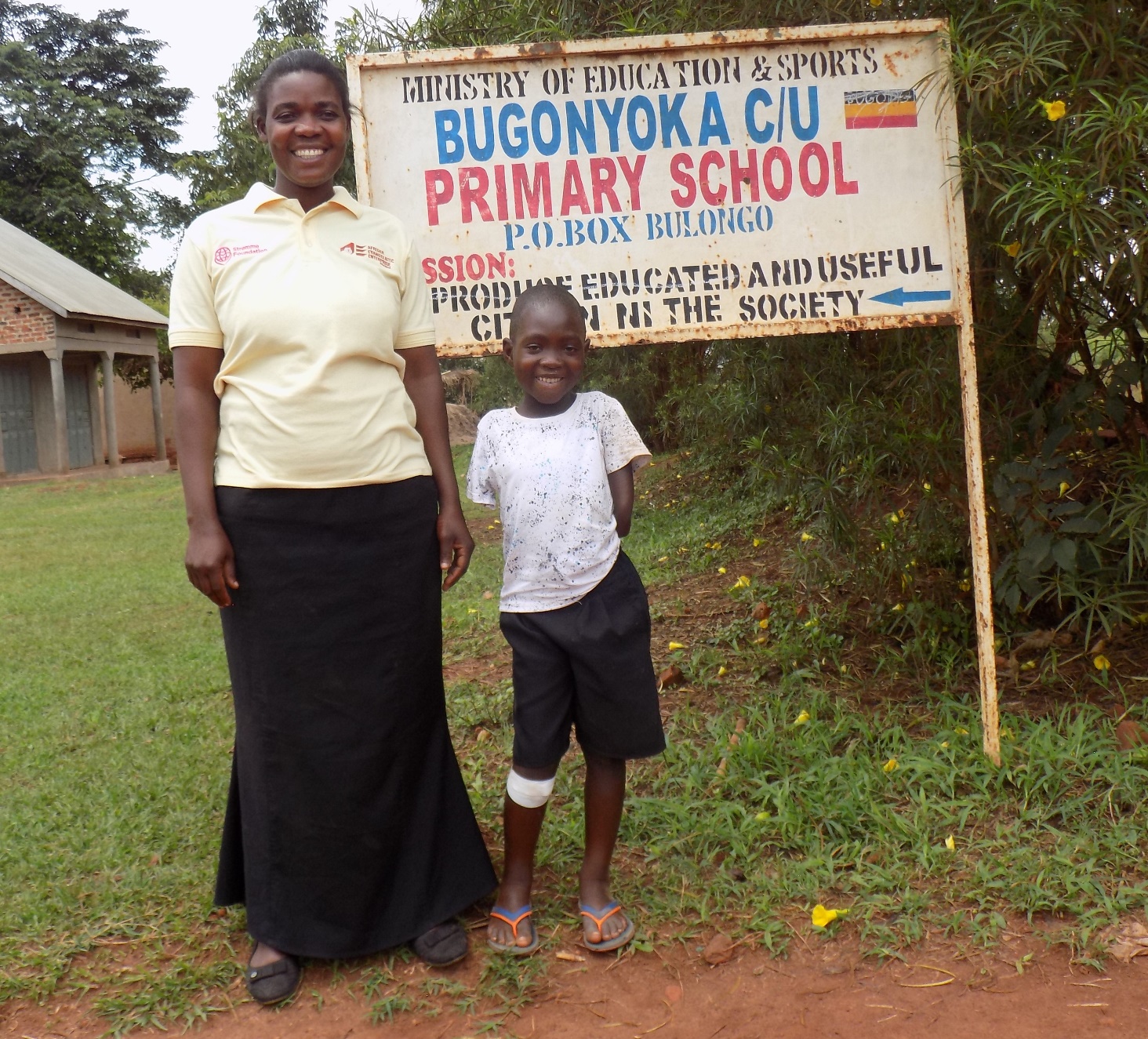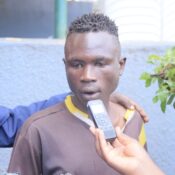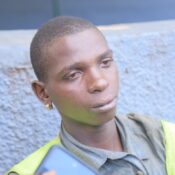
Fahad’s Inspiring Journey: Overcoming Challenges and Embracing Education
Meet Fahad, a seven-year-old boy residing in Gumpithuula village, located in the Buyende district of Eastern Uganda. Fahad was born with symbrachydactyly, a condition that a leaves with short fingers that may be webbed or joined. Some or all of the fingers may be underdeveloped or not developed at all. Due to this challenge, his parents initially believed that sending him to school would be futile, as they thought he wouldn’t be able to perform typical activities like writing. Consequently, Fahad spent his days waiting for his friends to return from school so that he could join them in play.
However, Fahad’s story took a remarkable turn when Rose Musenero, a teacher at Bugonyoka Primary School in Gumpithuula village, noticed that Fahad was not attending school like his peers. Rose had recently completed an Inclusive Learning Module Training on the Identification of Out-of-School Children with Disabilities as part of the TOFI project, which focused on the theme “Leave no Child Behind.” Inspired by this training, Rose decided to approach Fahad’s parents and encourage them to enroll him in school, despite their concerns about his ability to write.
With persistent persuasion, Fahad was eventually enrolled at Bugonyoka Primary School. His dream of becoming a lawyer was rekindled. Each morning, Fahad eagerly rises early to attend school. While his classmates write at their desks, Fahad places his notebook on the floor and skillfully uses his feet to write. He proudly shares, “I have learned to eat porridge by myself, and now I am learning to clean my mouth after eating. I can also write using my feet, and I am very excited about it.”
Nevertheless, Fahad faces challenges in performing everyday tasks, such as packing his school bag or getting his porridge from the kitchen. He heavily relies on the assistance of his teachers and friends. He mentions, “I cannot do some simple tasks because they are difficult. I don’t even wear the school shirt because it has buttons. I have to wear T-shirts to school. My friends pick porridge for me during break time and help me cool it so that I don’t get burnt.”
Despite these challenges, Fahad expresses his joy in attending school, where he gets to play with his friends. His teachers recognize him as a cheerful boy with a bright future. They firmly believe that with time and support, Fahad will continue to learn and develop the skills he needs to become more independent.
Fahad’s journey serves as a powerful reminder of the importance of inclusive education, determination, and the potential for every child to overcome obstacles and achieve their dreams. His story is an inspiration to all, showcasing the boundless possibilities that open up when we embrace inclusivity and ensure that no child is left behind.
Meet Fahad, a seven-year-old boy residing in Gumpithuula village, located in the Buyende district of Eastern Uganda. Fahad was born with symbrachydactyly, a condition that left him without both hands. Due to this challenge, his parents initially believed that sending him to school would be futile, as they thought he wouldn’t be able to perform typical activities like writing. Consequently, Fahad spent his days waiting for his friends to return from school so that he could join them in play.
However, Fahad’s story took a remarkable turn when Rose Musenero, a teacher at Bugonyoka Primary School in Gumpithuula village, noticed that Fahad was not attending school like his peers. Rose had recently completed an Inclusive Learning Module Training on the Identification of Out-of-School Children with Disabilities as part of the TOFI project, which focused on the theme “Leave no Child Behind.” Inspired by this training, Rose decided to approach Fahad’s parents and encourage them to enroll him in school, despite their concerns about his ability to write.

With persistent persuasion, Fahad was eventually enrolled at Bugonyoka Primary School. His dream of becoming a lawyer was rekindled. Each morning, Fahad eagerly rises early to attend school. While his classmates write at their desks, Fahad places his notebook on the floor and skillfully uses his feet to write. He proudly shares, “I have learned to eat porridge by myself, and now I am learning to clean my mouth after eating. I can also write using my feet, and I am very excited about it.”
Nevertheless, Fahad faces challenges in performing everyday tasks, such as packing his school bag or getting his porridge from the kitchen. He heavily relies on the assistance of his teachers and friends. He mentions, “I cannot do some simple tasks because they are difficult. I don’t even wear the school shirt because it has buttons. I have to wear T-shirts to school. My friends pick porridge for me during break time and help me cool it so that I don’t get burnt.”
Despite these challenges, Fahad expresses his joy in attending school, where he gets to play with his friends. His teachers recognize him as a cheerful boy with a bright future. They firmly believe that with time and support, Fahad will continue to learn and develop the skills he needs to become more independent.
Fahad’s journey serves as a powerful reminder of the importance of inclusive education, determination, and the potential for every child to overcome obstacles and achieve their dreams. His story is an inspiration to all, showcasing the boundless possibilities that open up when we embrace inclusivity and ensure that no child is left behind.
News & Stories
I need my MUM
What I truly desire is to go back home to Mbale
Cigana Samurai – 17 years old, from Hoima, Bunyoro
All Categories
- Busoga Program (8)
- Evangelism (18)
- General (16)
- Mission (4)
- Missions (11)
- Newsroom (2)
- Prayer Devotionals (2)
- Publications (3)
- Recent News (2)
- Stories (19)
- West Nile Program (13)
- Youth empowerment (1)





Add your first comment to this post